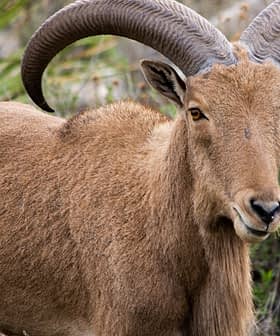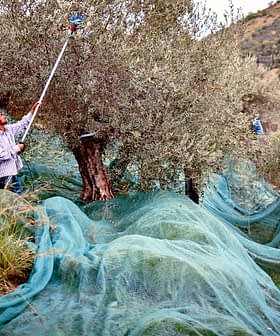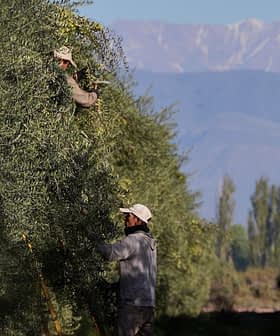Turkish Producer Highlights the Distinctive Qualities of the Native Kilis Olive
The award-winning producers behind Masmana have overcome a range of climatic and socioeconomic challenges to bring their organic Kilis olive oil to the world.
Masmana, a fourth-generation family company in Kilis, Turkey, is working to create their own brand of extra virgin olive oil from the endemic Kilis variety, focusing on high-quality production with high levels of polyphenols. Despite facing challenges like earthquakes, the Syrian civil war, and changing climate conditions, Masmana has successfully grown sales in various countries, but has faced difficulties due to periodic bulk export bans implemented by the Turkish trade ministry.
The southeastern Turkish province of Kilis has a long history of olive cultivation but is far less known for its olive oil production.
Archaeologists found 4,000-year-old olive seeds in Oylum Höyük, an ancient mound in the province, along with basaltic grinding stones, which may have been used to produce olive oil.
We are expecting a good harvest next season. But the issue is that big buyers outside of Turkey do not know if they will be able to buy olive oil in bulk, so we can’t sign any contracts.
Despite producing significant quantities of olive oil each year, the vast majority has been sold in bulk to private labelers in Turkey and Italy.
The family behind Masmana is working to change this by creating their own brand and exporting extra virgin olive oil made from the endemic Kilis variety.
See Also:Producer Profiles“We are a fourth-generation family company,” said co-founder Ali Hayta. “My father and grandfather sold olive oil in bulk to big companies.”
Despite growing up in olive groves, Hayta only became involved in olive oil production in the past half-decade.
“There were no direct exports from eastern Turkey then,” Hayta said. “Around six years ago, my wife, Ayşeğül, and I thought we should sell our olive oil with our brand.”
“At first, it was really difficult to sell olive oil because nobody knew our region or brand,” he added.
After traveling to a food fair in Madrid and visiting producers across the Mediterranean, Hayta and his wife decided the best course of action was to focus on organically producing the local Kilis variety.
“We noticed that the Kilis variety is very rich in polyphenols, so in the past four years, we have focused on producing high-quality olive oil with high levels of polyphenols,” Hayta said. “This is our biggest advantage.”
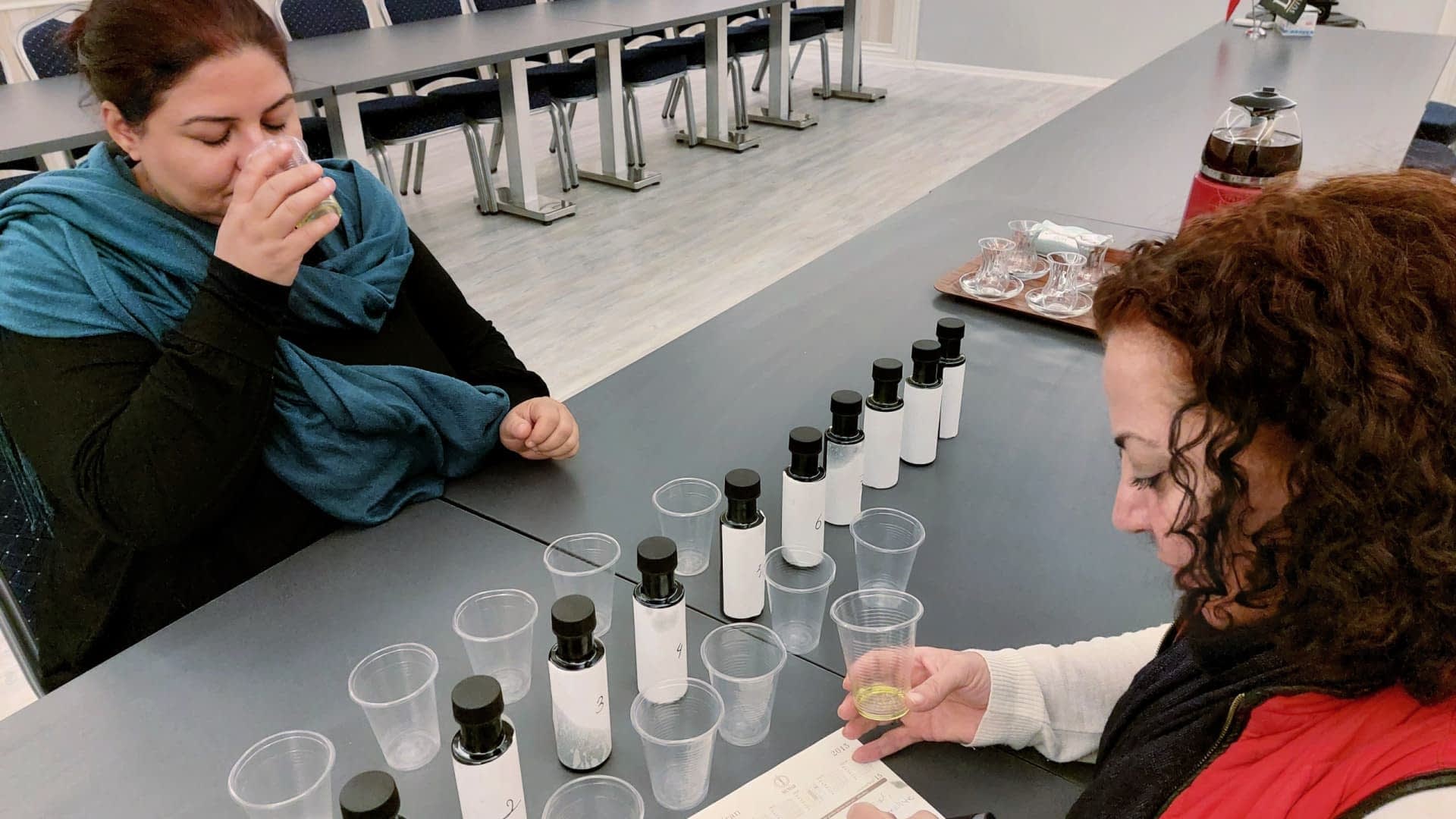
Kilis extra virgin olive oil is naturally high in polyphenols and boasts distinct organoleptic traits. (Photo: Masmana)
Now, Masmana produces olive oil from its 5,000-tree grove at its mill. The company also rents olive groves from other farmers each season to harvest the olives. Hayta visits the groves to check on the olives and ensure they are healthy before striking a deal.
To demonstrate to themselves and their customers that quality is consistently high, Hayta entered Masmana’s brands into international competition.
The couple’s planning and hard work started to bear fruit when they earned two Silver Awards at the 2022 NYIOOC World Olive Oil Competition. Masmana returned to the world stage in 2024, earning a Gold Award.
Hayta said that winning awards has helped him sell extra virgin olive oil and raise awareness about the region and its variety.
“Our sales are increasing every year,” he said. “We have a new customer in the United States this year, and we will soon start selling our olive oil online and on Amazon.”
Masmana has also successfully grown sales in Russia, Malaysia and Indonesia.
After their initial success in 2022, the couple had hoped to enter the 2023 NYIOOC, but these plans were derailed after successive 7.8 and 7.6 magnitude earthquakes shook the region in February 2023.
The earthquakes, which affected large swaths of southeastern Turkey and northern Syria, resulted in an estimated 62,000 deaths and 122,000 injuries and caused more than $160 billion in damage.
“It was terrible,” Hayta said. “There were thousands of aftershocks, and this had the worst psychological impact. We are still afraid when we hear small noises from outside. We think another earthquake is coming.”
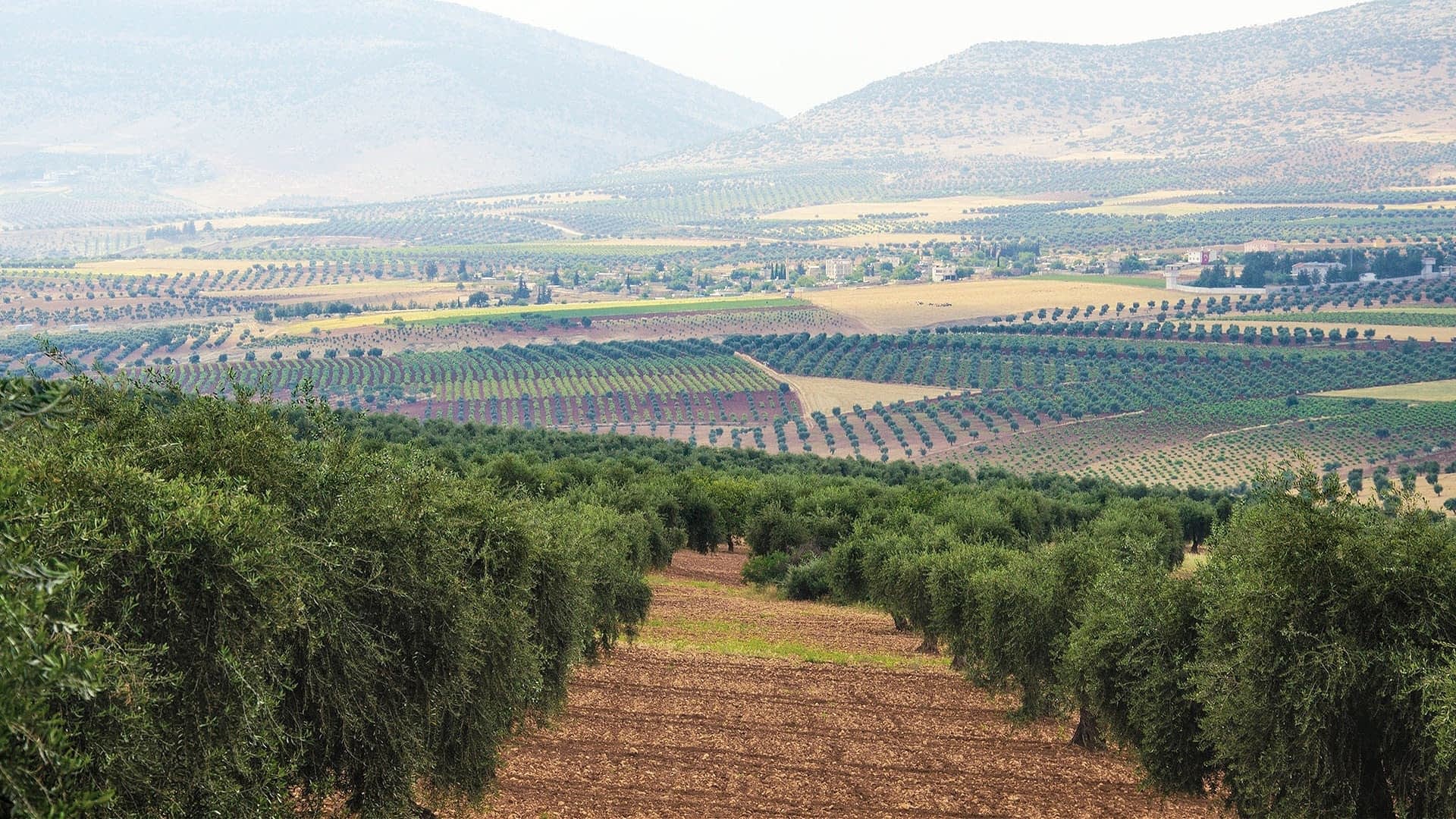
Masmana cultivates organic Kilis olives in the fertile plains of southeastern Turkey. (Photo: Masmana)
“Our mill, house and business were damaged, but the worst damage was to our psychology,” he added.
Long before the earthquake, Hayta said the company was used to overcoming challenges. The grove is located about 50 kilometers away from the Syrian border, and Kilis province has felt the impacts of its neighbor’s bloody civil war.
Since the conflict began in 2011, 3.6 million Syrian refugees fled to Turkey. In less than half a decade, the population of the city of Kilis doubled to about 200,000 people.
While many Syrians have assimilated and Hayta has hired many to work in Masmana’s groves and mill, he said the sheer number has overwhelmed local public services.
Aside from the challenges posed by the company’s location along tectonic fault lines and the Syrian border, Masmana has also overcome the usual difficulties that olive farmers face everywhere.
Like many olive farmers in Turkey, Masmana experienced a significant production decline in the 2023/24 crop year.
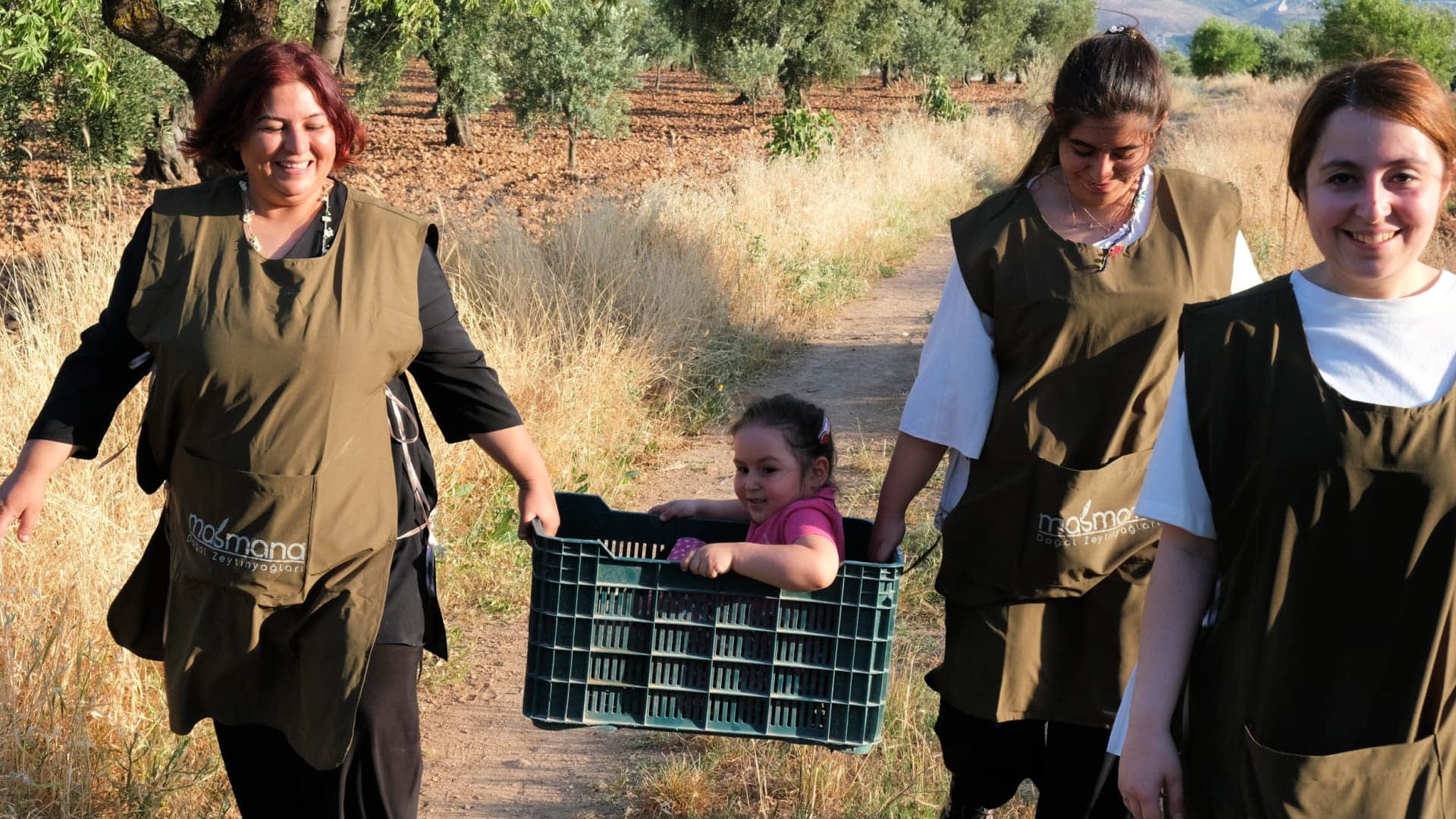
Along with its own groves, Masmana also rents land from other farmers to meet production needs. (Photo: Masmana)
“Last year was very hot, and there was no rain for a long time,” he said. “Normally, we start the early harvest around September 15th to 20th, but last year, we saw early on that there would not be enough oil in the fruit, so we didn’t harvest until October 10th.”
Hayta added that his Kilis olives usually have an exceptionally high oil yield of 25 percent, but last year, this fell to 17 percent. Additionally, he said the fruit was smaller than usual. “It was really a difficult harvest last year,” he said.
Hayta believes the potential for more harvests like 2023/24 is increasing due to climate change. “The climate is changing, and we will see it have more of an impact on olive growing in the future,” he said.
Many Kilis trees are not irrigated, which is not a problem for now since they require less water than other varieties and are well adapted to the cold temperatures experienced by the region during the winter.
However, Hayta has noticed that growers with Arbequina and other varieties common in western Turkey increasingly need irrigation to have successful harvests.
“They cannot survive very easily in this area,” he said. “When the weather is too cold or hot, they get damaged. Our variety can survive these conditions without too much water.”
Along with a poor harvest in 2023/24, Hayta said ongoing limitations to bulk olive oil exports created problems for himself and many other regional producers.
Before the latest ban was announced in August 2023, Hayta had a deal to export six tons of his olive oil in bulk to a Swedish company, which would then bottle and resell it.
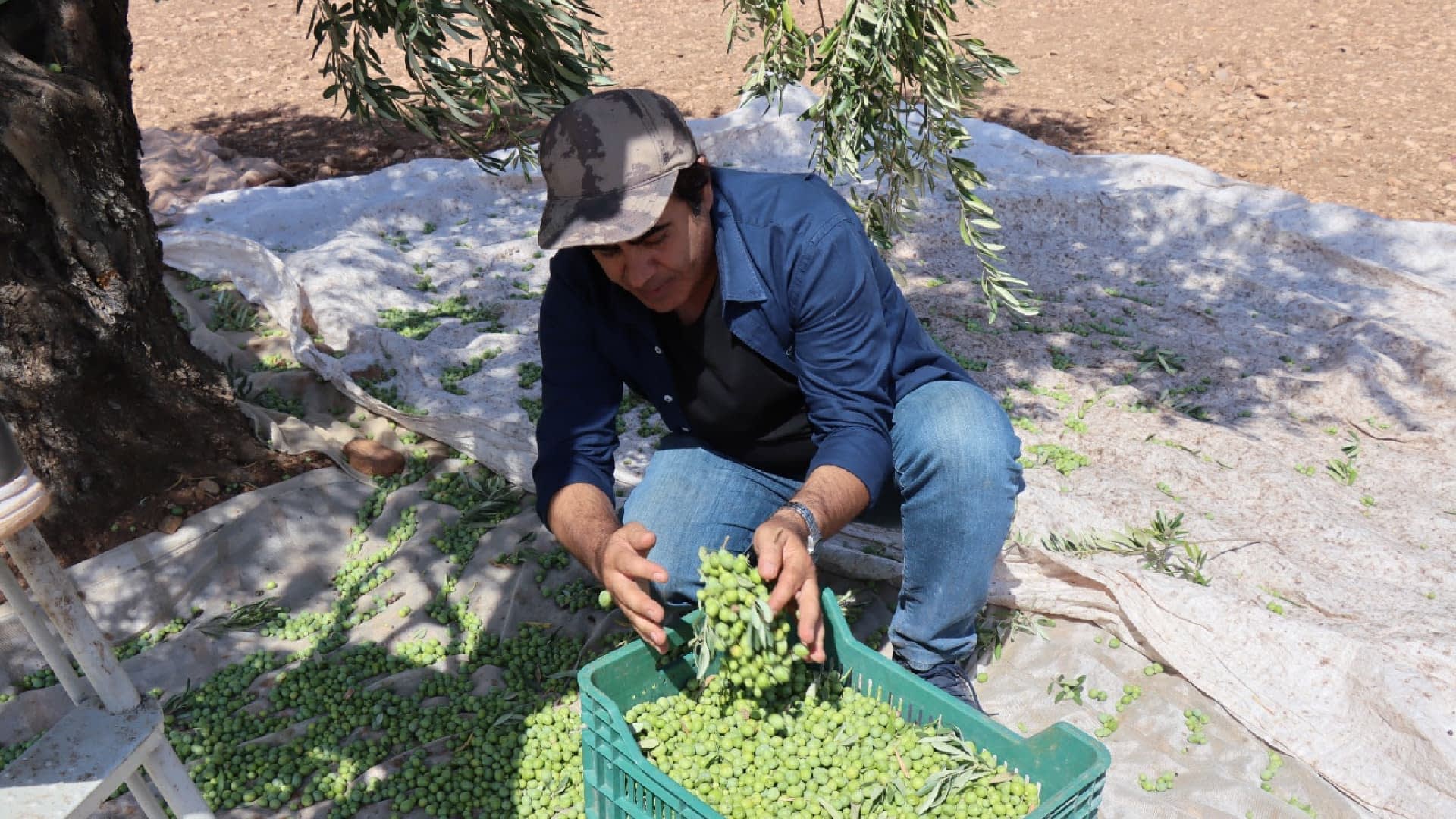
Hayta inspects recently-harvested olives before transporting them to the company’s dedicated mill. (Photo: Masmana)
He said one of the main advantages of selling in bulk is that the logistics are easier, and shipping is cheaper than exporting the same volume in individually packaged bottles. This contract had to be canceled after the ban was announced. “We lost the customer,” he said.
While the Turkish trade ministry has implemented bulk export bans in each of the past three years to keep olive oil prices affordable on the domestic market, Hayta said the periodic prohibitions have resulted in foreign companies becoming more skeptical about signing deals with Turkish producers.
“We are expecting a good harvest next season,” Hayta said. “But the issue is that big buyers outside of Turkey do not know if they will be able to buy olive oil in bulk, so we can’t sign any contracts.”
While official estimates will not be published until the autumn, some people in Turkey are optimistic that the country will produce 400,000 tons of olive oil in 2024/25, slightly below the record-high yield of 2022/23.
“We had a good amount of rain during the winter and spring,” Hayta said. “This is the most important thing. The other thing is that it wasn’t very hot [at the time of blossoming], though it has started to get hot now, around 39 ºC, 40 ºC or 42 ºC.”
“If these temperatures continue through August, the olives might have some problems,” he added. “But until now, we haven’t had any problems. We will have to see how things develop.”
Share this article

